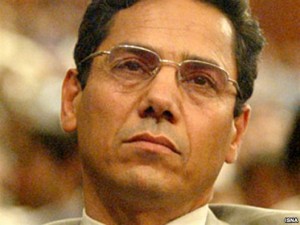Imprisoned Human Rights Lawyer Eligible for Release If New Code Enforced

Abdolfattah Soltani, a prominent human rights lawyer, is serving a 13-year sentence on political charges.
“We are surprised why this law’s enforcement has been delayed. If this law is enforced, my father’s sentence will be reduced and it will become even clearer that many political prisoners have over-stayed in prisons. We are regularly pursuing the enforcement of this article through Mr. Soltani’s lawyer, but we have not heard anything yet. When a new law is added, the Judiciary must swiftly place it in their procedures, but I don’t know why this article has not been implemented yet,” Maedeh Soltani told the Campaign.
In an earlier interview with the International Campaign for Human rights in Iran, Iranian lawyer and human rights activist, Mahnaz Parakand, explained about Article 134 of the new Islamic Penal Code: “According to the old Islamic Penal Code, if a person was convicted of several crimes, he would have to endure all the related sentences, whereas under the new Islamic Penal Code, if a person commits several crimes, he will only be sentenced to punishment for the crime with the heaviest sentence. After 2009, we have had many prisoners who have been charged with several crimes such as ‘propaganda against the regime,’ ‘assembly and collusion against national security,’ and ‘insulting the Supreme Leader.’ If sentences for all of these charges were to be added together, the individual would receive more than ten years in prison, but no court has so far implemented the new Islamic Penal Code for these individuals. If implemented, many of them should be released now or their sentences would be decreased,” said Mahnaz Parakand.
Abdolfattah Soltani, a prominent human rights lawyer, was arrested on September 10, 2011. On January 8, 2012, Branch 26 of Tehran Revolutionary Court under Judge Pirabbasi sentenced him to 18 years in prison, exile to Borazjan, and 20 years’ ban on his legal practice on charges of “being awarded the [2009] Nuremberg International Human Rights Award,” “interviewing with media about his clients’ cases,” and “co-founding the Defenders of Human Rights Center.” An appeals court eventually reduced Abdolfattah Soltani’s sentence to 13 years in prison. He is currently inside Evin Prison’s General Ward 350, where he has suffered from digestive tract problems for which he was hospitalized last year.
During his election campaign, Hassan Rouhani promised to release the political prisoners. “I believe there has been so much pressure on Mr. Rouhani, he has not been able to do this. But we will continue to express our demand everywhere and ask the Iranian Judiciary and officials to enforce the laws, because if the laws are not carried out, there will be mayhem. Our problem today is that laws are not being enforced. It will be other people’s turn tomorrow, and soon it may be their own turn. If the new Islamic Penal Code is enforced, my father’s and other prisoners’ release will be accelerated,” Maedeh Soltani told the Campaign.
Maedeh Soltani told the Campaign that judicial authorities have repeatedlhy promised her father’s release on furlough—a promise that has never been delivered. “Mr. Khodabakhshi, the Assistant Judge who is the attendant Judiciary liaison with the prisoners, promised three times over the past year to allow my father furlough, but my father has not been allowed even one day of furlough. They once asked my mother to post bail collateral in order to give my father furlough leave for the Iranian New Year, but after the collateral was delivered, they told my mother that the Prosecutor had not approved the furlough. After a while, they asked my mother again to introduce a custodian [in lieu of bail], but after she introduced the custodian, they said again that the Prosecutor had not approved of the furlough. The last time was in November 2013, when they told my mother to submit a deed [as collateral] for my father’s release, and my mother delivered a land deed, but after a while they said again that the Prosecutor had not approved the furlough,” Maedeh Soltani told the Campaign.
“We don’t know what the reason for the disapproval is. When my mother asks Mr. Khodabakhshi about the reason for the Prosecutor’s refusal to approve the furlough, he says he doesn’t know and that she would have to ask the Prosecutor herself. But my mother has been unable to see the Prosecutor even once during the past two years. She has tried many times to make an appointment with him, but she has not been allowed to see him. Since my father’s arrest, my mother’s life is spent on the road between prison, the Prosecutor’s office, and home,” she added.






